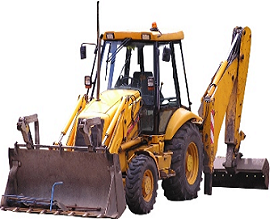Business Owners and Contractors need to keep costs under control.

 Contractors / Commercial / Business
Contractors / Commercial / Business
Contractors, like so many other occupations, often need specialized insurance coverage. Insurance coverage is available for every conceivable risk your business might face. The cost and amount of coverage you can obtain on policies vary among insurers. You should discuss your specific business risks and the types of insurance available with your insurance agent or broker. Your agency can advise you on the exact types of insurance you should consider purchasing. Some of the more common include:
General Liability: Business owners purchase general liability insurance to cover legal hassles due to accident, injuries and claims of negligence. These policies protect against payments as the result of bodily injury, property damage, medical expenses, libel, slander, the cost of defending lawsuits, and settlement bonds or judgments required during an appeal procedure. Coverage may also include faulty workmanship.
Inland Marine: Inland marine coverage is how a contractor can obtain coverage for tools, equipment, and a variety of other items. There are many different types of items that can be covered and why you may want to consider this type of insurance.
Product Liability: Companies that manufacture, wholesale, distribute, and retail a product may be liable for its safety. Product liability insurance protects against financial loss as a result of a defect product that causes injury or bodily harm. The amount of insurance you should purchase depends on the products you sell or manufacture. A clothing store would have far less risk than a small appliance store, for example.
Professional Liability: Business owners providing services should consider having professional liability insurance (also known as errors and omissions insurance). This type of liability coverage protects your business against malpractice, errors, and negligence in provision of services to your customers. Depending on your profession, you may be required by your state government to carry such a policy. For example, physicians are required to purchase malpractice insurance as a condition of practicing in certain states.
Commercial Property Insurance: Property insurance covers everything related to the loss and damage of company property due to a wide-variety of events such as fire, smoke, wind and hail storms, civil disobedience and vandalism. The definition of "property" is broad, and includes lost income, business interruption, buildings, computers, company papers and money.
Property insurance policies come in two basic forms: (1) all-risk policies covering a wide-range of incidents and perils except those noted in the policy; (2) peril-specific policies that cover losses from only those perils listed in the policy. Examples of peril-specific policies include fire, flood, crime and business interruption insurance. All-risk policies generally cover risks faced by the average small business, while peril-specific policies are usually purchased when there is high risk of peril in a certain area. Consult your insurance agent or broker about the type of business property insurance best suited for your small business.
Home-Based Business: Contrary to popular belief, homeowners' insurance policies do not generally cover home-based business losses. Depending on risks to your business, you may add riders to your homeowners' policy to cover normal business risks such as property damage. However, homeowners' policies only go so far in covering home-based businesses and you may need to purchase additional policies to cover other risks, such as general and professional liability.
Insurance Requirements for Employers:
Also see other forms of insurance that contractors and small business owners should obtain according to the Insurance Information Institute.
Let us help you find the right coverage at the best rates.

